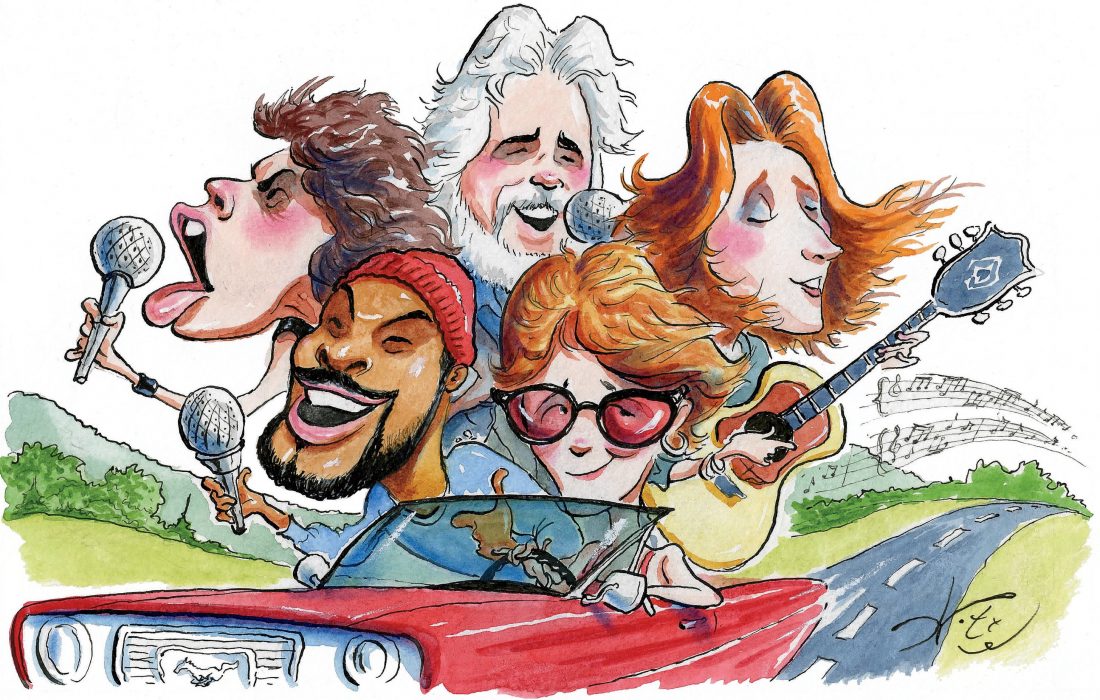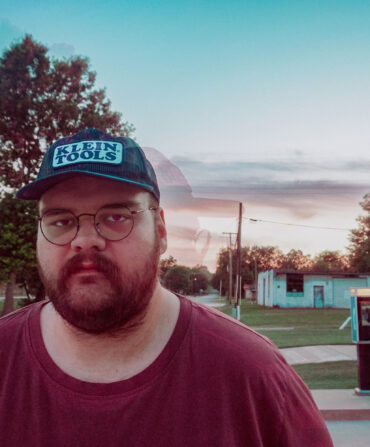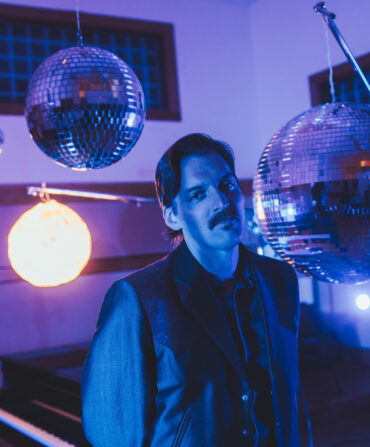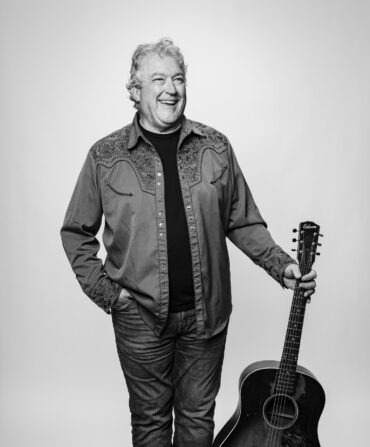In the summer 1969, Richard Nixon’s first one as president, my father was appointed to the American Revolution Bicentennial Commission (the Mississippi delegation had supported Nixon’s nomination at the Republican National Convention the previous summer, and Nixon was a grateful man). The first meeting was, fittingly, in July, so my mother decided to go too and take my first cousin Frances and me to see the nation’s capital. Frances was two months older than I was—which meant she was already nine and I was eight—but in terms of cool she was light-years ahead. She was taller and thinner and wore her long hair parted in the middle (my mother was forever pulling mine back with a gold barrette). Frances owned a beautiful chestnut pony named Key Biscayne; I rode a fat white mare belonging to my riding teacher, who called her Mary Poppins. On the plane from Nashville, where Frances lived, we wore matching white piqué Florence Eiseman dresses, but mine was accessorized by a lame red, white, and blue scarf in keeping with the spirit of the outing. Frances’s scarf had been designed by überhip pop artist Peter Max and was a gift from the impossibly gorgeous and twenty-years-younger man Frances’s mother, my aunt Frances, would later marry.
Anyway, even though we had just completed the third grade, Frances was, naturally, up on everything, including the songs on that summer’s pop charts. Her two favorites were: “Ruby, Don’t Take Your Love to Town,” the (upon grown-up reflection) antiwar song about a paralyzed vet and his philandering woman, written by the great Mel Tillis and made famous by Kenny Rogers and the First Edition; and “Spinning Wheel,” the horn-heavy and comparatively psychedelic tune by Blood Sweat & Tears.
It was a fun trip. We had a private tour of the White House, climbed the stairs to the top of the Washington Monument, and were allowed to assist the pretty young woman who ran the gift shop at our hotel, the newly opened Madison. But what I remember most were those two songs and every single one of their lyrics, which Frances sang pretty much nonstop. She sang them to the tourists while my mother paddled us in a boat around the Tidal Basin; she sang them from the backseat during the entire car ride to Colonial Williamsburg. I am confident that my mother still shudders at the sound of the opening chord of each, but to me they will forever be symbols of that summer and how much I adored my now departed cousin.
I mourn Frances every day, but I also mourn those time-specific singles that would become the anthems and/or background music of each season. They were like the lead characters in Don Henley’s addictive “Boys of Summer”: You know they’re coming, you can’t wait for their arrival, they mark your experience like nothing else, and then they’re gone. Songs are still released every summer, of course. But unless they were played on one of the three channels I listen to most on SiriusXM, I couldn’t possibly tell you which ones were most popular last year. But without looking it up, I can tell you right now that Bonnie Raitt’s “Something to Talk About” was released in May 1991—it was my first, very memorable, summer in New Orleans and I was up to the same thing she was.
The thing—and the shame—is, it could be my song again this summer, and so, for that matter, could “Ruby” (though I think I’ll pass). On any given day I can listen to either or both on my laptop, my phone, or in my new car that’s tricked out with Sirius and Pandora and God knows what else (I have yet to read the manual). But if the songs of summer can be whatever you want them to be, those three supercharged months—marked by freedom and possibility and some life-changing moment of love or lust or longing for something you might not even know yet—won’t be nearly as vividly defined or so accurately placed in time. I want (need) a song to immediately dial up what I wore and whom I loved, what I drove and what I dreamed about. A sound track lends even potentially fleeting moments an indelible quality not unlike a movie scene. The songs meant that everybody had a reel.
Herewith I offer a handful of highlights from my own reel, which, with a notable exception, makes an excellent summer playlist and is my gift to the readers of summer 2015:
“Band of Gold”
Freda Payne, Band of Gold
It’s 1970 in Nashville. I shuttle between my grandparents’ house and that of Aunt Frances, who is not much focused on her children. Frances and I spend most nights on cots from the army-navy store in what was once our backyard playhouse, smoking cadged Maryland 100s cigarettes and burning incense to mask the smell. We have a hip new digital clock radio and roll the dial back and forth between WMAK and WKDA. “Ride Captain Ride” is Frances’s favorite, and I don’t dare tell her I think it might be the worst song ever recorded. Instead, I can’t get enough of the seriously great “Band of Gold,” also the favorite of Ernestine Turner, my grandmother’s cook, whom I adore at least as much as Frances. We run errands in Ernestine’s Chevy Nova and sing it at the top of our lungs, along with Joe Cocker’s excellent version of “The Letter” from the same summer (Ernestine, having ditched her husband and her own band of gold, is now dating a postman). Thirty-two years later, I’m lucky enough to be a guest at Liza Minnelli’s ill-fated wedding to the producer David Gest. Because he specialized in comeback acts, the reception’s musical guests (the surviving members of the 5th Dimension, B. J. Thomas, the reunited Doobie Brothers, Billy Paul) play what is essentially a list of the songs of summers past, including “Band of Gold,” sung by Payne herself. I shed a tear for Ernestine and cannot believe my luck.
“Mercy Mercy Me (The Ecology)”
Marvin Gaye, What’s Going On
It’s 1971 and Aunt Frances has married the man who is now my uncle Mike. He drives a vintage forest-green Mercedes (the first I’d ever seen), and his presence in our family ups Frances’s cool quotient even higher. When “Mercy Mercy Me,” which spends two weeks at the top of the August charts, comes on the radio, he explains to us what the word ecology means. We are enthralled.
“Cowgirl in the Sand” and “Love the One You’re With”
Crosby, Stills, Nash & Young, 4 Way Street
It’s 1974 and Crosby, Stills, Nash & Young have reunited for an epic tour. By now I have my own stereo and I’m especially in love with Stephen Stills and Neil Young. Frances is visiting us in Mississippi, and we convince my mother to take us to Memphis with my best friend, Jessica, to see CSN&Y perform in a stadium that no longer exists. Spoiled, protected, and ridiculously bourgeois, we manage to fill a thermos with Kahlúa, the only booze on my parents’ bar we knew they wouldn’t miss. We’ve not yet become acquainted with the recreational drugs we see the folks around us partaking of (and ODing on), but, in our huaraches and gauze Indian shirts, we are desperate to fit in. Jesse Colin Young and Elvin Bishop open, “Carry On” lasts for at least a half hour, and it remains one of the best concerts I’ve ever seen.
“Muskrat Love”
Captain & Tensile, Song of Joy
It’s the summer of 1976, a month before another Republican National Convention is going to decide between President Gerald Ford and Ronald Reagan, former governor of California. Mississippi is the last uncommitted delegation, and my father, its chairman, is a mighty popular man. He and my mother are invited to the White House for the State Dinner in honor of Queen Elizabeth and Prince Philip, which is not, I assure you, the reason he ultimately cast his vote for Ford. My mother, who is wearing a diamond necklace my grandmother sent in a box on the bus from Nashville, sits next to Bill Blass and gives Cary Grant directions to the loo. The dinner is in a tent over the Rose Garden, and the menu features California wines, New England lobster, and a peach ice cream bombe. Everything is perfect except, unbelievably, Captain & Tennille have been asked to entertain. I cannot imagine what the queen made of this song, complete with the synthesizer sound effects of the muskrats mating.
“Too Long at the Fair”
Bonnie Raitt, Give It Up
Raitt’s second album comes out in the summer of 1972, but it doesn’t have pride of place in my eight-track tape deck until the summer of 1976, my first behind the wheel of a car. Every song is perfect (including Jackson Browne’s “Under the Falling Sky”), but this one best conjures the lost love and heartbreak Jessica and I both thought we’d already suffered. It would be a bit before we knew the real thing, but in the meantime we could throw back the top of my navy 1967 Mustang convertible, crank up Bonnie, and drown our overblown teenage sorrows with an under-age six-pack of Miller ponies.
“Miss You”
The Rolling Stones, Some Girls
This song is released in May 1978, the same month I graduate from high school, and is played on an almost continual loop at the late and much lamented One Block East, one of the world’s greatest ever bars. My male running buddies and I play a happy-hour drinking game that involves a pitcher of beer, a lit cigarette, and a dime, and take great pleasure in mimicking Mick’s high-pitched chorus. Eleven years later, I’m about to get married and the same gang offers to reprise the song as an all-too-fitting recessional in the church. That’s not why I end up calling off the wedding, but the cancellation coincides with the release of my favorite song of that particular summer (1989), Mary Chapin Carpenter’s “Quittin’ Time.” Most people treat me like I have a brain tumor (Newsweek has recently come out with a story citing a study saying women who aren’t married by age forty have a greater chance of being killed by a terrorist than tying the knot—and this is when there weren’t many terrorists). Meanwhile, I’m juking up and down the streets of Manhattan with “Quittin’ Time” on my Walkman. The only person who articulates what I felt, better, even, than Carpenter is my father’s friend John Alsop. When I call him with the news, he says, simply, “Relief’s a hell of an emotion, isn’t it?” Yep, it is. Every time I hear that song, I still feel a refreshing surge of it, and every time I hear “Miss You,” I crack up over the vision of that motley would-be nuptial choir. It’s great to be both seventeen and twenty-eight again. I remember exactly how I felt.








